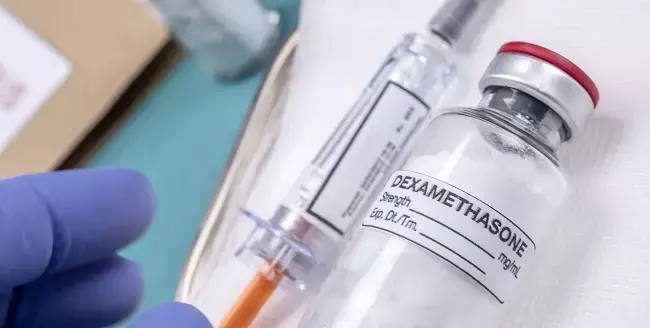- Home
- Medical news & Guidelines
- Anesthesiology
- Cardiology and CTVS
- Critical Care
- Dentistry
- Dermatology
- Diabetes and Endocrinology
- ENT
- Gastroenterology
- Medicine
- Nephrology
- Neurology
- Obstretics-Gynaecology
- Oncology
- Ophthalmology
- Orthopaedics
- Pediatrics-Neonatology
- Psychiatry
- Pulmonology
- Radiology
- Surgery
- Urology
- Laboratory Medicine
- Diet
- Nursing
- Paramedical
- Physiotherapy
- Health news
- Fact Check
- Bone Health Fact Check
- Brain Health Fact Check
- Cancer Related Fact Check
- Child Care Fact Check
- Dental and oral health fact check
- Diabetes and metabolic health fact check
- Diet and Nutrition Fact Check
- Eye and ENT Care Fact Check
- Fitness fact check
- Gut health fact check
- Heart health fact check
- Kidney health fact check
- Medical education fact check
- Men's health fact check
- Respiratory fact check
- Skin and hair care fact check
- Vaccine and Immunization fact check
- Women's health fact check
- AYUSH
- State News
- Andaman and Nicobar Islands
- Andhra Pradesh
- Arunachal Pradesh
- Assam
- Bihar
- Chandigarh
- Chattisgarh
- Dadra and Nagar Haveli
- Daman and Diu
- Delhi
- Goa
- Gujarat
- Haryana
- Himachal Pradesh
- Jammu & Kashmir
- Jharkhand
- Karnataka
- Kerala
- Ladakh
- Lakshadweep
- Madhya Pradesh
- Maharashtra
- Manipur
- Meghalaya
- Mizoram
- Nagaland
- Odisha
- Puducherry
- Punjab
- Rajasthan
- Sikkim
- Tamil Nadu
- Telangana
- Tripura
- Uttar Pradesh
- Uttrakhand
- West Bengal
- Medical Education
- Industry
IV dexamethasone increases blood sugar only for short duration in diabetics after knee surgery: Study

South Korea: The administration of IV dexamethasone after total knee arthroplasty (TKA) in diabetes patients exerts transient effects on increasing the blood sugar levels, a recent study has found. However, regardless of IV dexamethasone administration, there is a need for patients with a preoperative HbA1c level of ≥7.05% to change their diabetic medication after TKA. The study findings appear in The Journal of Arthroplasty.
To determine whether administrations of IV dexamethasone jeopardize blood sugar control, increase rates of postoperative complications, and diabetic medication change after TKA, Hyung Jun Park, Seoul National University College of Medicine, SMG-SNU Boramae Medical Center, Seoul, South Korea, and colleagues conducted a retrospective study including 427 patients with type 2 diabetes who underwent TKA.
According to the use of IV dexamethasone, the patients were divided into two groups (Dexa and No Dexa). For the Dexa, IV dexamethasone (5mg) was administered twice (surgery day, postoperative day 1). The researchers also analyzed blood glucose levels until postoperative day 5, whether the mean blood glucose level was ≥200 mg/dL or not, the rate of a diabetic medication change, and postoperative complications (surgical site infection, delayed wound healing).
Based on the study, the researchers inferred the following:
- The adverse effects of IV dexamethasone on glycemic control were limited to the day of injection.
- The mean blood glucose level was 168.8 mg/dL and 204.4 mg/dL on operation day and 193.0 mg/dL and 210.5 mg/dL on postoperative day 1 in the No Dexa and the Dexa, respectively.
- High preoperative glycated hemoglobin (HbA1c) levels, but not IV dexamethasone administration, increased the risk of postoperative blood glucose level ≥200 mg/dL (odds ratio [OR], 2.810) and diabetic medication change (OR, 3.635).
- A preoperative HbA1c level of >7.05% was associated with the risk of diabetic medication change. There was increase of postoperative complications (OR, 0.693).
"Our findings showed that IV dexamethasone has transient effects on increasing the blood glucose level after TKA in patients with DM," wrote the authors. "However, patients with a preoperative HbA1c level of ≥7.05% may need to change their diabetic medication after TKA, regardless of IV dexamethasone administration."
Reference:
The study titled, "Effects of Intravenous Dexamethasone on Glycemic Control in Patients With Type 2 Diabetes Mellitus After Total Knee Arthroplasty," is published in The Journal of Arthroplasty.
DOI: https://www.arthroplastyjournal.org/article/S0883-5403(21)00640-9/fulltext
Dr Kamal Kant Kohli-MBBS, DTCD- a chest specialist with more than 30 years of practice and a flair for writing clinical articles, Dr Kamal Kant Kohli joined Medical Dialogues as a Chief Editor of Medical News. Besides writing articles, as an editor, he proofreads and verifies all the medical content published on Medical Dialogues including those coming from journals, studies,medical conferences,guidelines etc. Email: drkohli@medicaldialogues.in. Contact no. 011-43720751


